TECH AND NATURE COLLIDE TO CLEAN WATER
When you pour your leftover juice down the drain or take a shower, you probably don’t think much about where that water goes. Maybe that’s because we live in a day and age when proper water treatment and handling are a luxury that most of us have in our homes and cities. On the farm, however, we think a lot about where our water goes and the effects it can have on our environment and our neighbors downstream.
Nitrate is a four-letter word
Nitrates – maybe you’ve heard of them, and maybe you haven’t, but it’s a word we use a lot on the farm. A nitrate is a compound that is naturally formed when nitrogen interacts with oxygen. All living things require nitrogen, but high levels of nitrates in our water supply can be problematic. Since nitrates are naturally created by plants and animals as well as some of the nitrogen fertilizers we use in our fields to help crops grow, we are always monitoring the nitrate levels in our water.
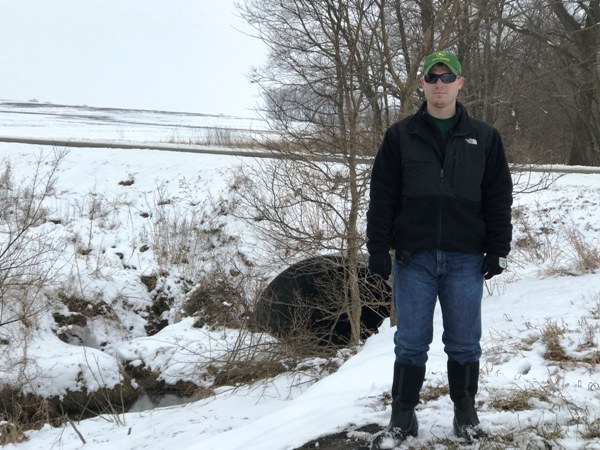
Conservation practices like cover crops, reduced tillage and thoughtfully calculated fertilizer applications have all made an impact on our farm’s water quality. But most recently, we installed a bioreactor that goes one step further to remove nitrates from water before it leaves our farm.
How it works
After rainfall, water naturally accumulates and runs towards the nearest stream or pond. For the bioreactor, we dug a trench where water naturally flows on my farm and filled it with woodchips. Microorganisms in the woodchips clean the nitrates out of the water by a process similar to breathing. Just like we inhale oxygen and exhale carbon dioxide, these microorganisms inhale the nitrates and exhale nitrogen gas before the water leaves my farm.
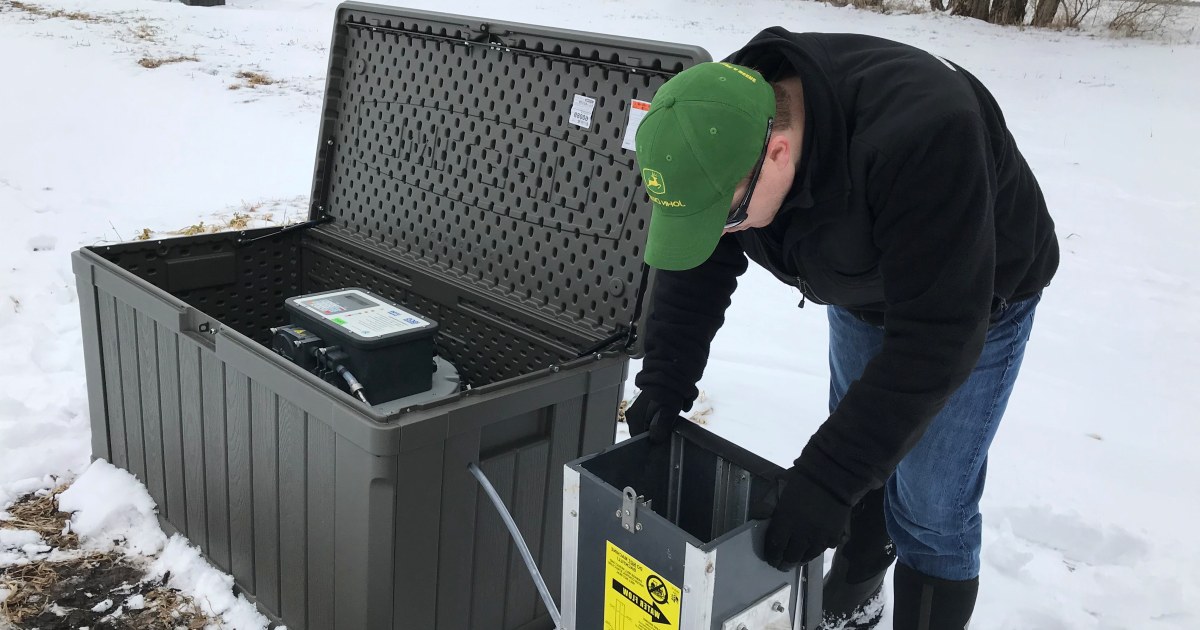
This box contains an auto sampler that is connected to my tile lines (underground drainage lines that keep water from pooling on my fields). The University of Illinois is using my bioreactor for research, so they need to be able to sample water as it enters and leaves the bioreactor. These auto samplers are set on a timer and pull samples automatically so that the water can be analyzed for nitrate levels.
I couldn’t do it alone
Ask just about any farmer, and they will tell you they don’t do it alone. Farming takes a lot of teamwork and resources, and getting this bioreactor installed on our farm was no exception.
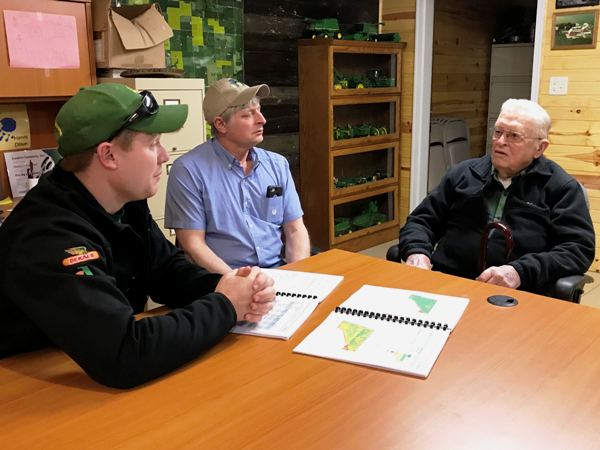
I have a long-standing relationship with my Crop Advisor, Malcom. He shares my passion for minimizing nutrient loss on the farm and has helped me implement new strategies on the farm and monitor our progress. I am also active with the Illinois Farm Bureau and have taken advantage of some tours and learning opportunities through their programs. One of those programs gave me the opportunity to set this bioreactor up on my farm.
I am beyond excited to improve our water quality, but it is likely something I wouldn’t have been able to afford to install on my own. At the end of the day, it takes research and technology to develop new conservation strategies, but none of it works without partners and experts who are willing to help you succeed.

My dad and grandpa have always been among the first to try new conservation methods and have really set the stage for where our farm is at today. They are a great example of what it means to be a steward of the land and have instilled in me the courage and mindset to keep trying. I’m excited to bring this technology to our farm and see the difference it can make in keeping our environment healthy.
Michael Ganschow, Walnut, IL

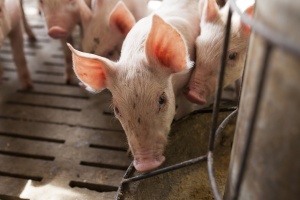
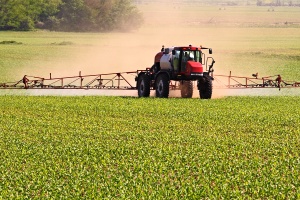




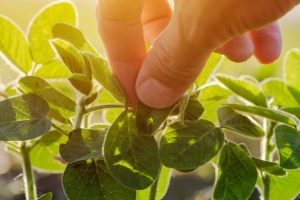

0 Comments